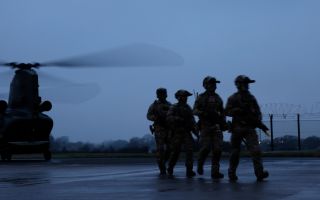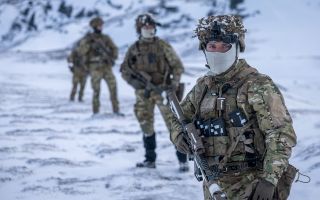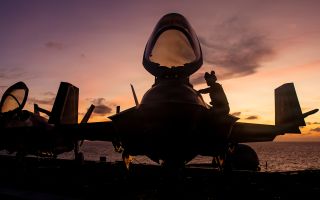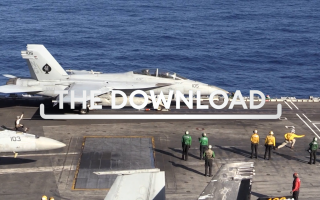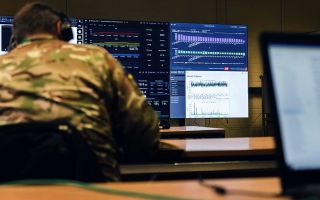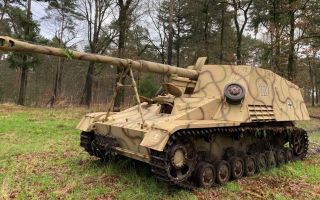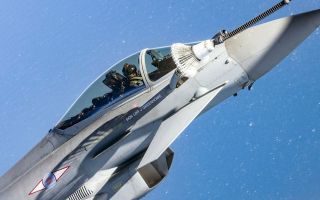Royal Navy pushes boundaries with launch of largest uncrewed aircraft from carrier
The largest uncrewed aircraft ever launched from a Royal Navy aircraft carrier has successfully taken off from HMS Prince of Wales.
The Mojave unmanned aircraft system, a modified version of the General Atomics MQ-1C Gray Eagle, was operated remotely by a pilot at a computer terminal during the trial off the east coast of the United States.
This was a first for the Royal Navy, as no crewless machine of this size had ever flown from an aircraft carrier outside of the US Navy.
The Mojave is nine metres long and weighs over 1.5 tonnes fully loaded. It also has a wingspan of 17 metres - six metres wider than the F-35B's.
This latest trial signifies a significant step forward in shaping the future of UK naval air power.
The Mojave can carry four Hellfire missiles and can conduct strike missions and surveillance over long distances.
"I am delighted that we are taking the lead in such exciting and important work to unlock the longer-term potential of the aircraft carrier and push it deep into the 21st Century as a highly-potent striking capability," said Vice Admiral Martin Connell, the Royal Navy's Second Sea Lord.
He also said that embracing autonomy was "the next logical step to ensuring that the Royal Navy can continue to fight and win in an increasingly complex operating environment".
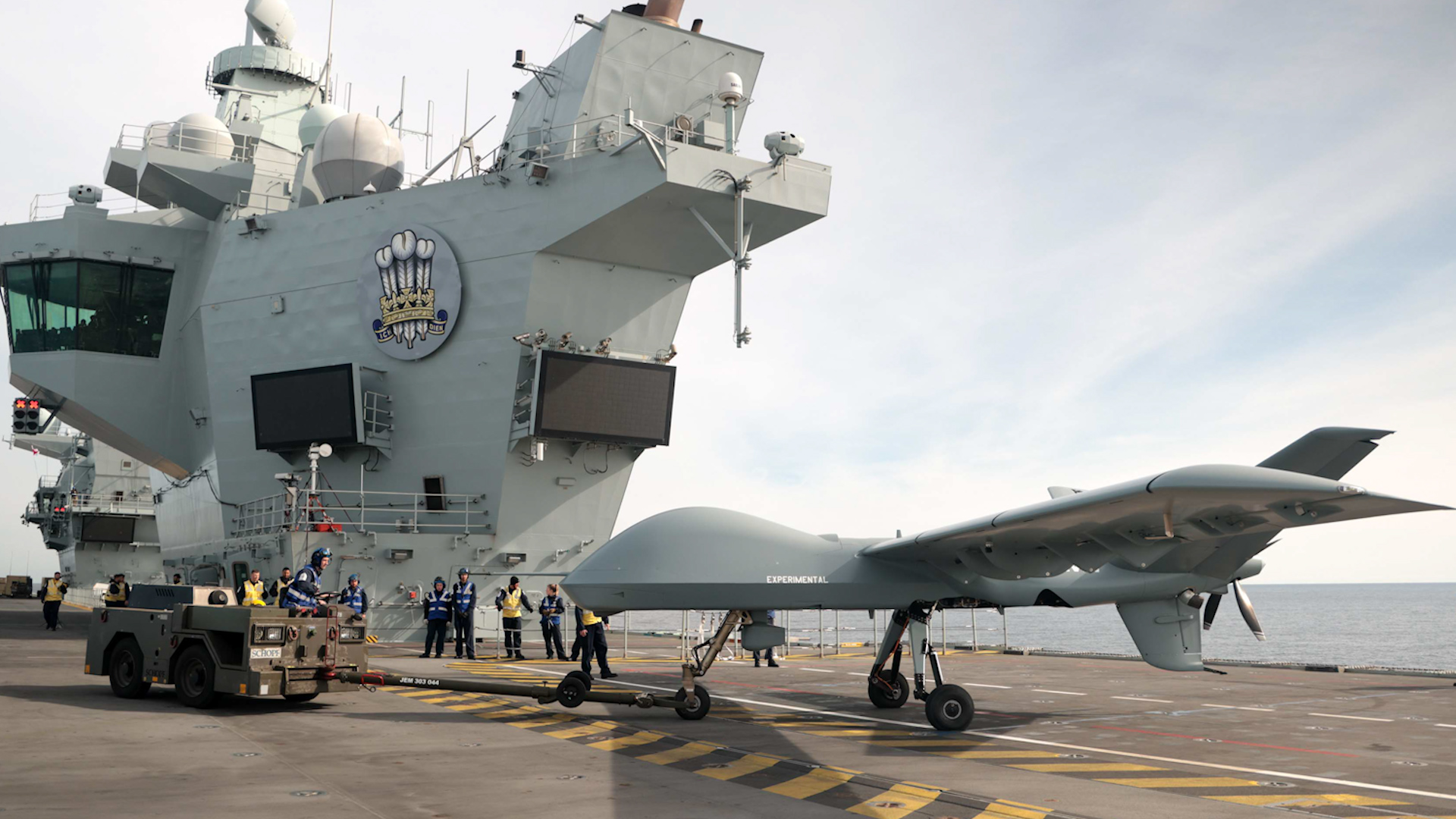
'Evolution' of the Royal Navy's CSG
Rear Admiral James Parkin, whose team planned the trial said: "The success of this trial heralds a new dawn in how we conduct maritime aviation and is another exciting step in the evolution of the Royal Navy's carrier strike group (CSG) into a mixed crewed and uncrewed fighting force."
The Royal Navy has been operating pilotless aircraft from its ships for the past 20 years, but the Fleet Air Arm's existing arsenal has been lacking a system capable of performing long endurance missions from a medium altitude - until the introduction of the Mojave.
Currently, the Fleet Air Arm operates drones designed for short-range surveillance operations, such as the hand-launched Puma.
The new Peregrine miniature helicopter, which is due to enter service in January, is also made for short-range missions.
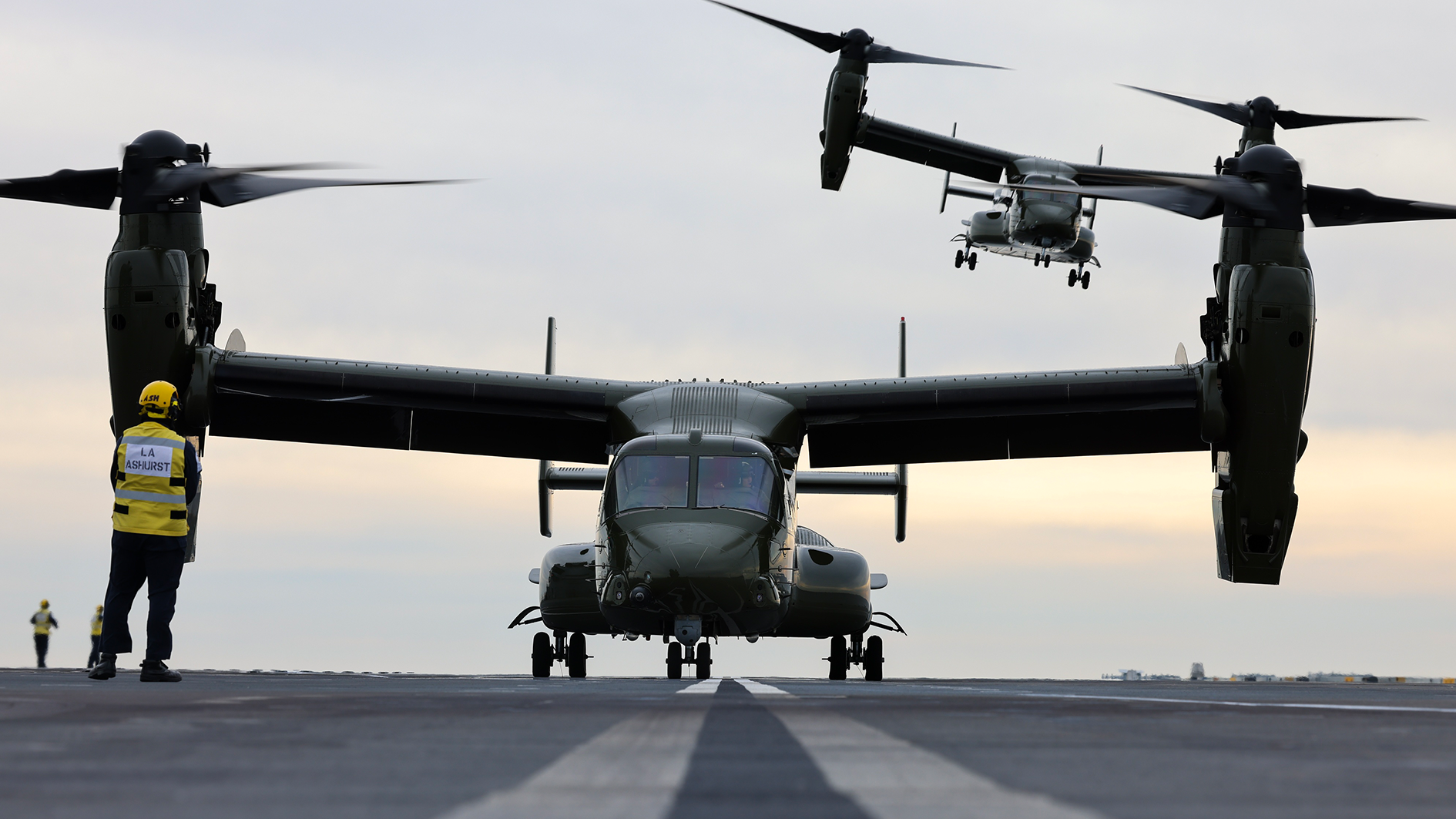
Mojave boasts short take-off and landing capabilities on runways that are even shorter than the flight decks of the Queen Elizabeth-class carriers.
Months of meticulous planning by from the Royal Navy, General Atomics and HMS Prince of Wales' crew culminated in the trial, which is part of a series that aim to push the boundaries of operations involving the UK's two carriers.
HMS Prince of Wales will be returning home to Portsmouth in time for Christmas after completing intense training with the US Marine Corps.

